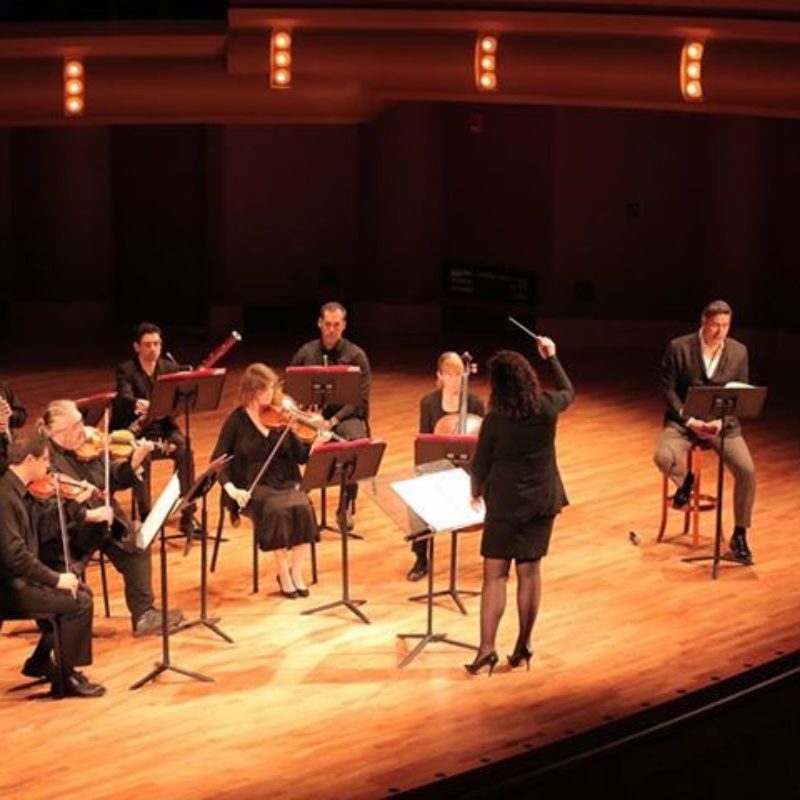



Superstar baritone and South Bend native Nathan Gunn has sung numerous iconic roles in opera and musical theater.
As Papageno in Mozart’s “The Magic Flute” at the Metropolitan Opera in New York, he pursued his elusive Papagena. As the title character in Tchaikovsky’s “Eugene Onegin” at Cincinnati Opera, he squandered his chances with the alluring Tatiana. In a concert rendition of Rodgers & Hammerstein’s “Carousel” with the New York Philharmonic, Gunn, as Billy Bigelow, tried to do right by his girl, Julie Jordan.
In name, at least, that last one wasn’t a stretch: Gunn is in love with a Julie Jordan in real life. Fortunately, he’s also a much nicer guy than Billy Bigelow was.
Nathan and Julie Jordan Gunn both hold teaching positions at the University of Illinois at Urbana-Champaign. Her specialties include arranging, piano performance and vocal coaching. Nathan and Julie have five children together, and somehow, on top of all the academic work and family time, the couple still manage to team up for recitals, as they will Sunday at the University of Notre Dame’s DeBartolo Performing Arts Center.
It’s the latest in a series of concerts as part of Gunn’s term as a Notre Dame artist-in-residence, an appointment that made all the more sense because Gunn still has a large extended family in South Bend.
The concert opens with Julie’s own arrangements of several pieces originally scored only for piano. In songs by Ben Moore and Roger Quilter, the accompaniment is a chamber group pairing her piano and the stringed instruments of the Solera Quartet. After playing through innumerable piano reductions of works written for larger forces, Julie has developed a knack for working in the inverse: arranging piano music for bigger groups.
“It’s helped me think more in terms of (tonal) color” Julie says by telephone from Champaign. “Sometimes I’ll have my students play from orchestral scores. It teaches them how to imagine colors more vividly.”
She says that the wide variety of moods and textures in the concert make sure that her husband’s skills aren’t under-utilized.
“Nathan has such a beautiful voice, so it becomes tempting just to put lots of beautiful melodies in recitals. We have to remember to include more vinegar in the salad dressing,” she says with a laugh.
With this in mind, the Gunns chose works including Samuel Barber’s setting of Matthew Arnold’s bleak “Dover Beach” as well as some Charles Ives songs that are idiosyncratic to the point of being flat-out bonkers.
Julie says that “The Heavenly Banquet” one of four selections from Barber’s “Hermit Songs” allows Nathan to express his funnier side as well.
“It’s about Jesus and the Holy Family drinking beer with this hermit,” she says.
It’s far removed from the starkness of “Dover Beach”, a prolonged cry of dismay at the crumbling of traditional religious beliefs in the face of advances in science and philosophy.
“In that poem, Matthew Arnold is in a world where there’s no Garden of Eden, no Adam and Eve anymore,” Nathan says. “It’s all gone upside-down, and where does that leave us?”
The Ives songs allow him to break away from that tone and into the unique world Ives describes via whooping and hollering in a piece such as “General William Booth Enters Into Heaven”. Nathan points out that Ives’ lucrative insurance business freed him from financial motives in his music.
“He figured he would write whatever the hell he wanted to write”, he says.
His unique style led some early critics to mislabel Ives as a charlatan. Time continues to reveal Ives as a revolutionary instead.
“Even today, he’s still way ahead of everybody else,” Nathan says.
Other highlights of the program include George Butterworth’s settings of A.E. Housman’s “A Shropshire Lad” and Paul Bowles’ “Blue Mountain Ballads”, with texts by Tennessee Williams.
Notre Dame’s Tricia Park is the leader and first violinist of the Gesauldo Quartet, which will change its name to the Solera Quartet in the fall. The string players get their own spotlights in the form of Caroline Shaw’s recent work “Entr’acte” and a special version of Pink Floyd’s “Any Colour You Like”.
For some works in this concert, Julie’s piano is the only accompaniment; for others, only the quartet plays with the singer. The full quintet lineup is something Julie says she intends to explore more in the future, even in the form of new commissions.
Nathan recalls his time studying with legendary vocal coach John Wustman, who advised the young baritone not to bother listening to a recording of Samuel Barber and soprano Leontyne Price performing “Hermit Songs”. Wustman told Gunn that he was emerging not just as an interpreter, but as a creative artist who can make choices.
“He said, Barber wrote them, but he doesn’t know how they go”, Gunn says. “Oh, I have kept that with me ever since”.